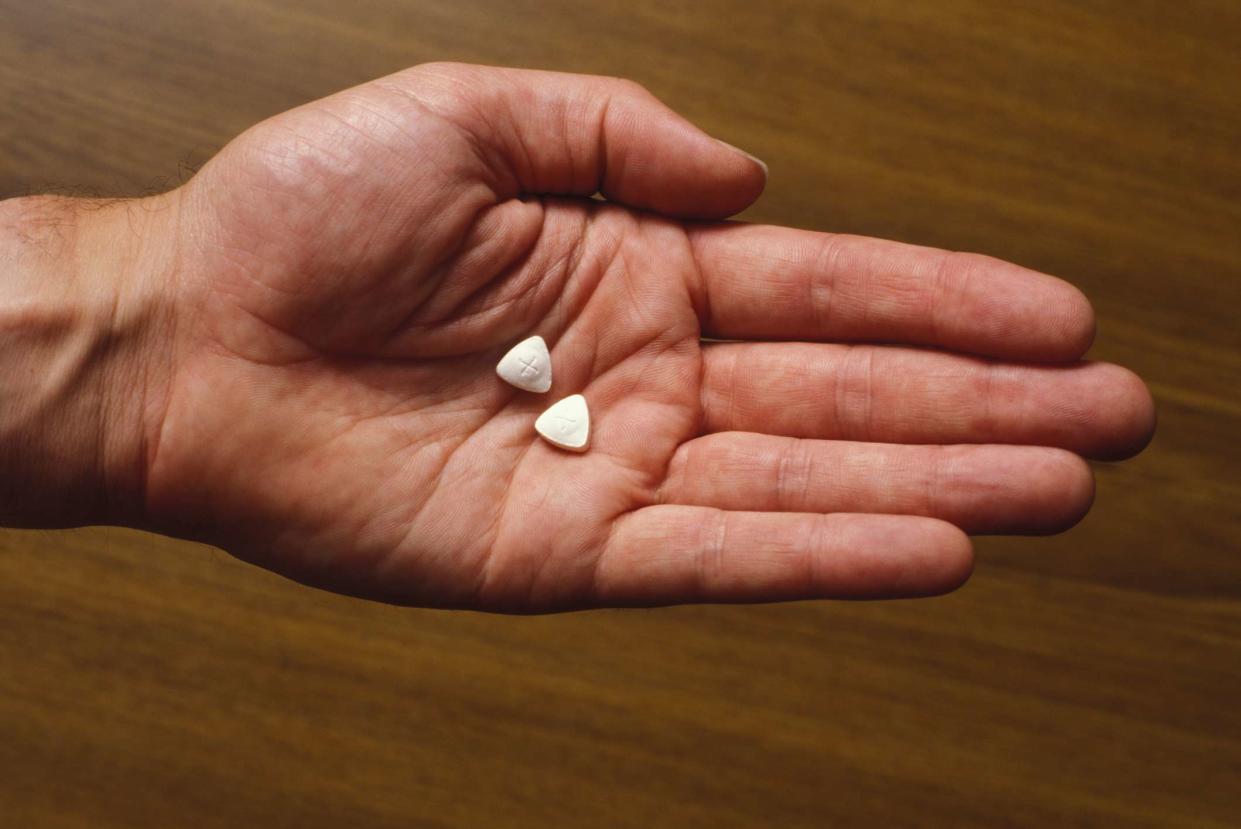Symptoms to Diagnose Other Hallucinogen Use Disorder

Medically reviewed by Steven Gans, MD
Other hallucinogen use disorder is a diagnosis recognized in the fifth edition of the Diagnostic and Statistical Manual of Mental Disorders, or DSM-5. The "Other" in the title distinguishes the hallucinogens causing the disorder from phencyclidine and pharmacologically similar substances, which has its own disorder, known as phencyclidine use disorder.
The drugs associated with other hallucinogen use disorder include phenylalkylaines, such as mescaline, DOM, MDMA or ecstasy, the indoleamines including psilocybin and psilocin, which are the psychoactive ingredient in magic mushrooms, DMT, the ergolines such as LSD or acid, and morning glory seeds. Various other plant compounds with hallucinogenic effects are also included.
What is the most important information to know about other hallucinogen use disorder?
Using hallucinogens, including MDMA, psilocybin, psilocin, and LSD, can lead to drug cravings, interpersonal problems, tolerance, and other symptoms of addiction.
Behavioral interventions, support groups, and self-help strategies can help people recover from other hallucinogen use disorder.
Related: What Are Psychedelic Drugs?
Symptoms of Other Hallucinogen Use Disorder
Symptoms of other hallucinogen use disorder include:
The person continues to use the hallucinogens, even though they have social or interpersonal problems, such as arguments, as a result of their drug use
The person continues to use hallucinogens even though they know it is causing or worsening a physical or psychological problem
The person craves hallucinogens
The person fails to carry out significant roles at work, school, or home because of their hallucinogen use
The person gives up or reduces other activities that are important to them, such as social, work-related, and other recreational activities. The person has difficulty cutting down or controlling their hallucinogen use
The person spends a lot of time getting, using, and recovering from hallucinogens.
The person takes more of the hallucinogen than they intended to
The person uses hallucinogenic drugs in dangerous situations, such as driving or operating machinery
Tolerance for hallucinogens
Diagnosis of Other Hallucinogen Use Disorder
To be diagnosed with other hallucinogen use disorder, a person must take a hallucinogen other than phencyclidine or phencyclidine-like substances. They must also exhibit at least two of the symptoms described above within a 12-month period.
It is also essential to rule out other conditions that could potentially be causing your symptoms. For example, medical professionals will rule out stimulant use disorder if you have inadvertently taken stimulant drugs that might be combined with hallucinogenic substances.
This can be detected in a urine screen which your doctor can arrange. If you have a stimulant use disorder, your doctor can help with detox to ease the associated discomfort of stimulant withdrawal.
Conditions that may cause similar symptoms that should also be ruled out include other substance use disorders, schizophrenia, panic disorder, depressive disorders, bipolar disorder, or alcohol withdrawal.
Your doctor may also perform a physical exam and lab tests to rule out medical conditions contributing to your symptoms, such as seizure disorder, central nervous system tumors, stroke, hypoglycemia, or other metabolic conditions.
Withdrawal Symptoms
Unlike many other substance use disorders, withdrawal symptoms are rarely, if ever, part of the picture in other hallucinogen use disorder. There does not appear to be a physical withdrawal syndrome when the drug is not taken, although there can be a very pronounced tolerance for the drug, which develops over a short period.
One exception to this rule is MDMA or ecstasy, which shares many of the characteristics of stimulants. It does appear to create withdrawal symptoms in many individuals taking this over time.
If you seem to be experiencing withdrawal symptoms after taking hallucinogens, seek medical assistance immediately.
If this happens, it is likely that you have either been taking another drug either instead of or in addition to the hallucinogen (drugs are often cut with other drugs that are cheaper or more easily obtained, such as amphetamines), or you are mentally or physically ill, which can develop during or after a period of drug use.
Related: Are Psychedelics Addictive?
Treatment for Other Hallucinogen Use Disorder
There are no medications that are FDA-approved for treating other hallucinogen use disorder. Treatments often recommended focus on behavioral interventions frequently utilized to treat other substance use disorders. Examples include:
Cognitive-behavioral therapy (CBT): Helps people recognize the thoughts and behaviors that contribute to substance use and develop more effective coping strategies
Motivational enhancement therapy (MET): Works to increase a person's motivation and commitment to staying drug-free
Contingency management (CM): Utilizes reinforcers, often in the form of small monetary rewards, in exchange for staying off of substances
If you think you might have other hallucinogen use disorder, talk to your doctor. They can recommend treatments that can help and refer you to resources in your community. You may also find that joining a support group and making lifestyle changes can help. Building a social support system, avoiding drug triggers, and taking care of your physical health are great strategies to use as you work toward recovery.
If you or a loved one are struggling with substance use or addiction, contact the Substance Abuse and Mental Health Services Administration (SAMHSA) National Helpline at 1-800-662-4357 for information on support and treatment facilities in your area. For more mental health resources, see our National Helpline Database.

